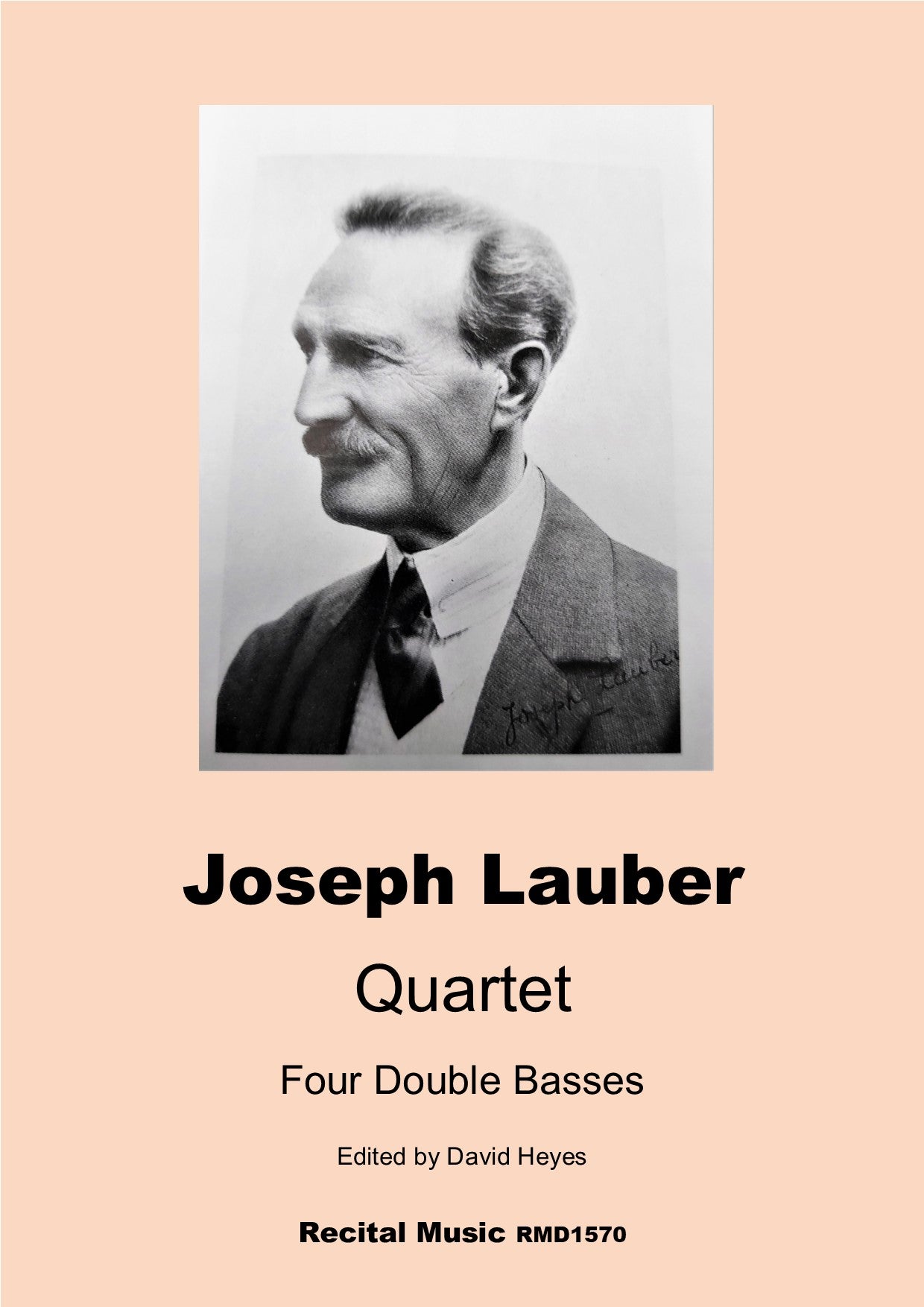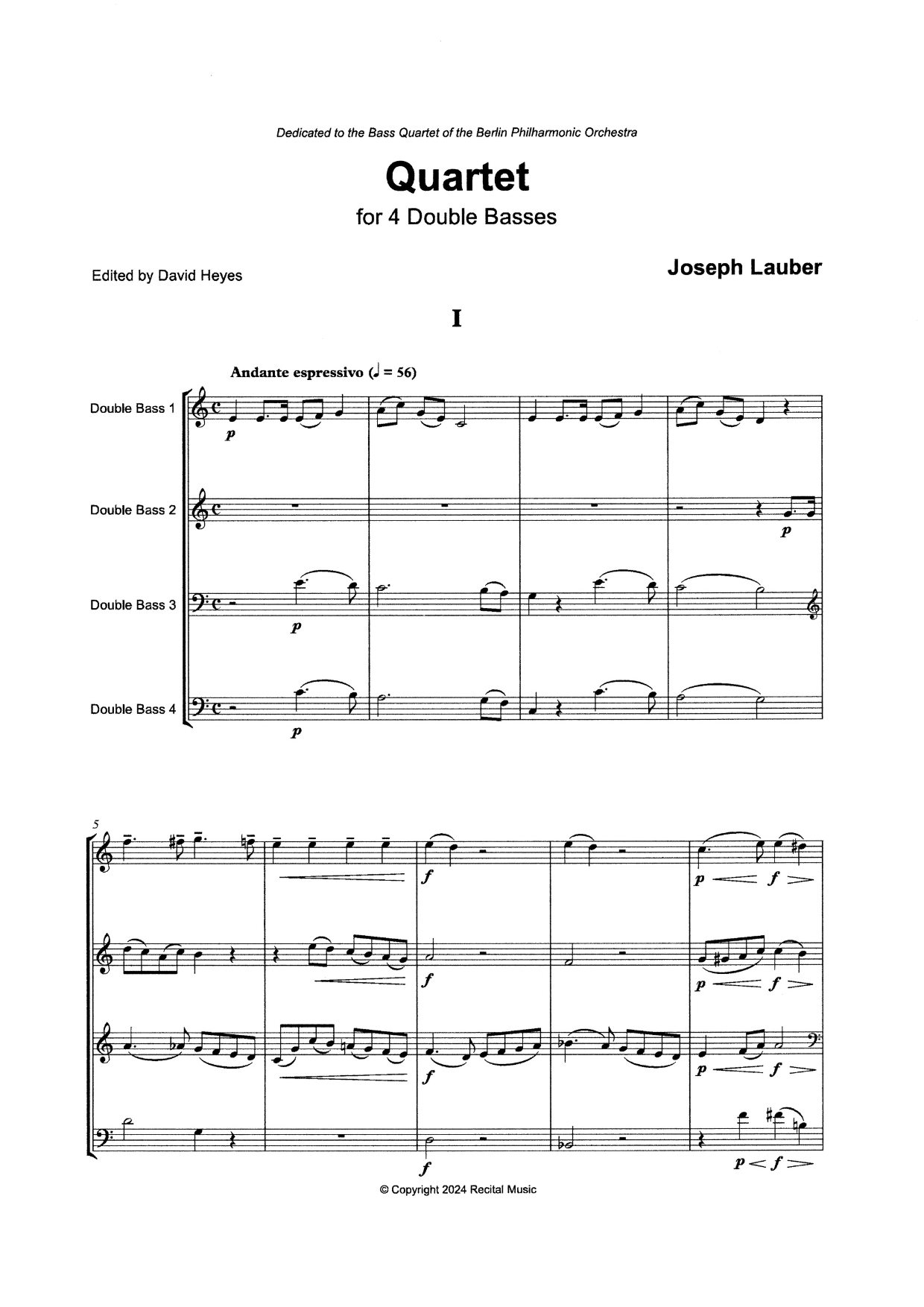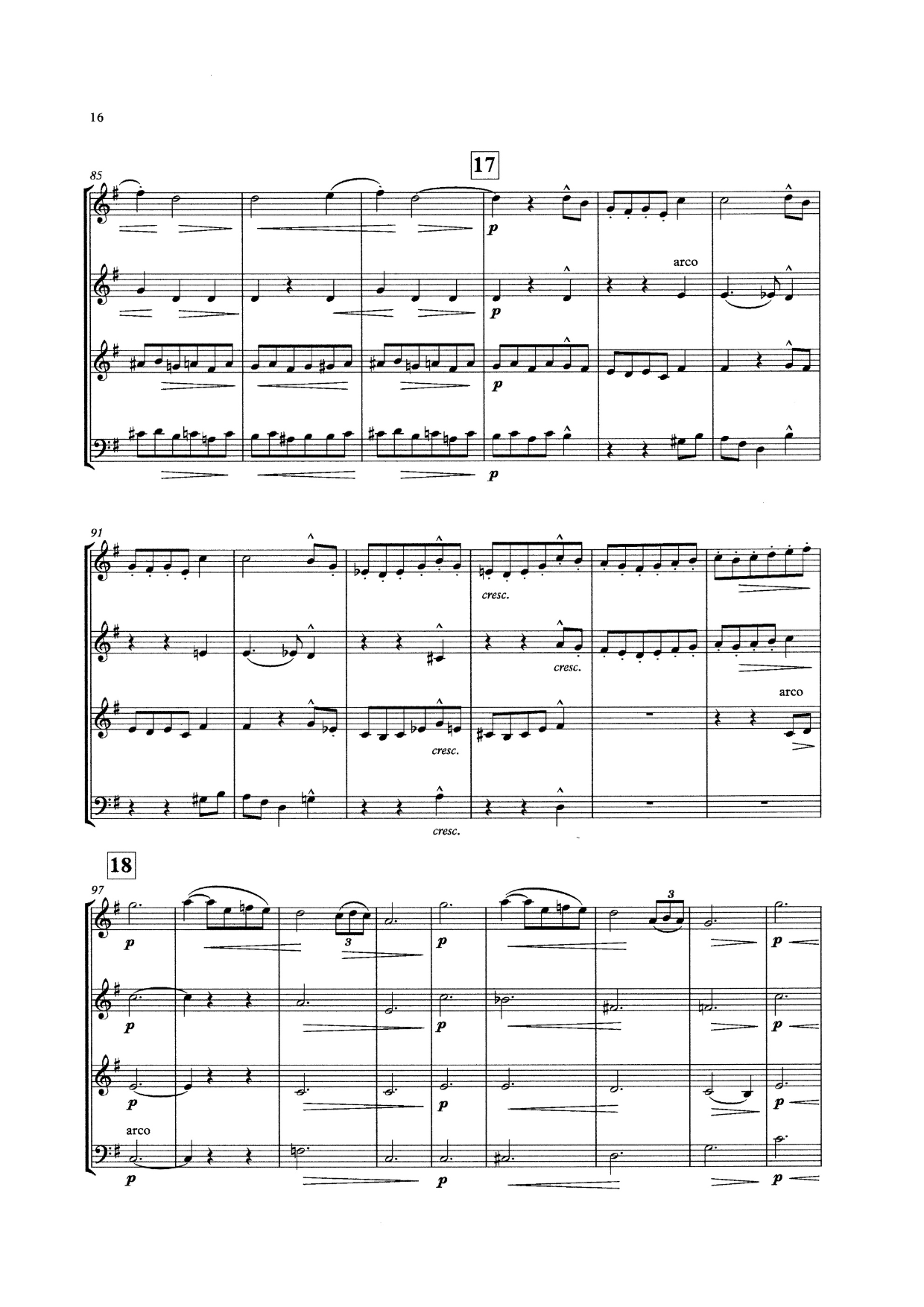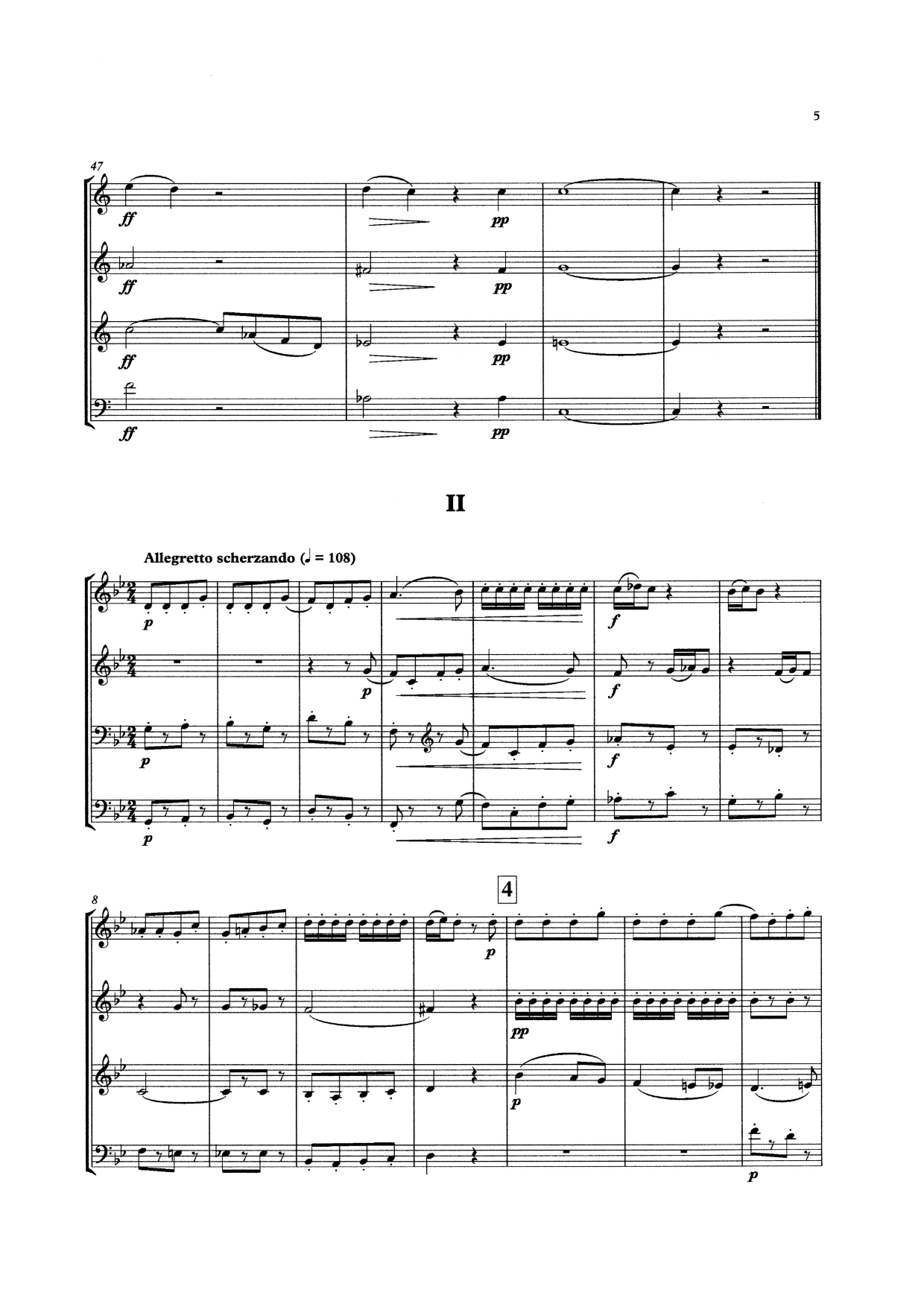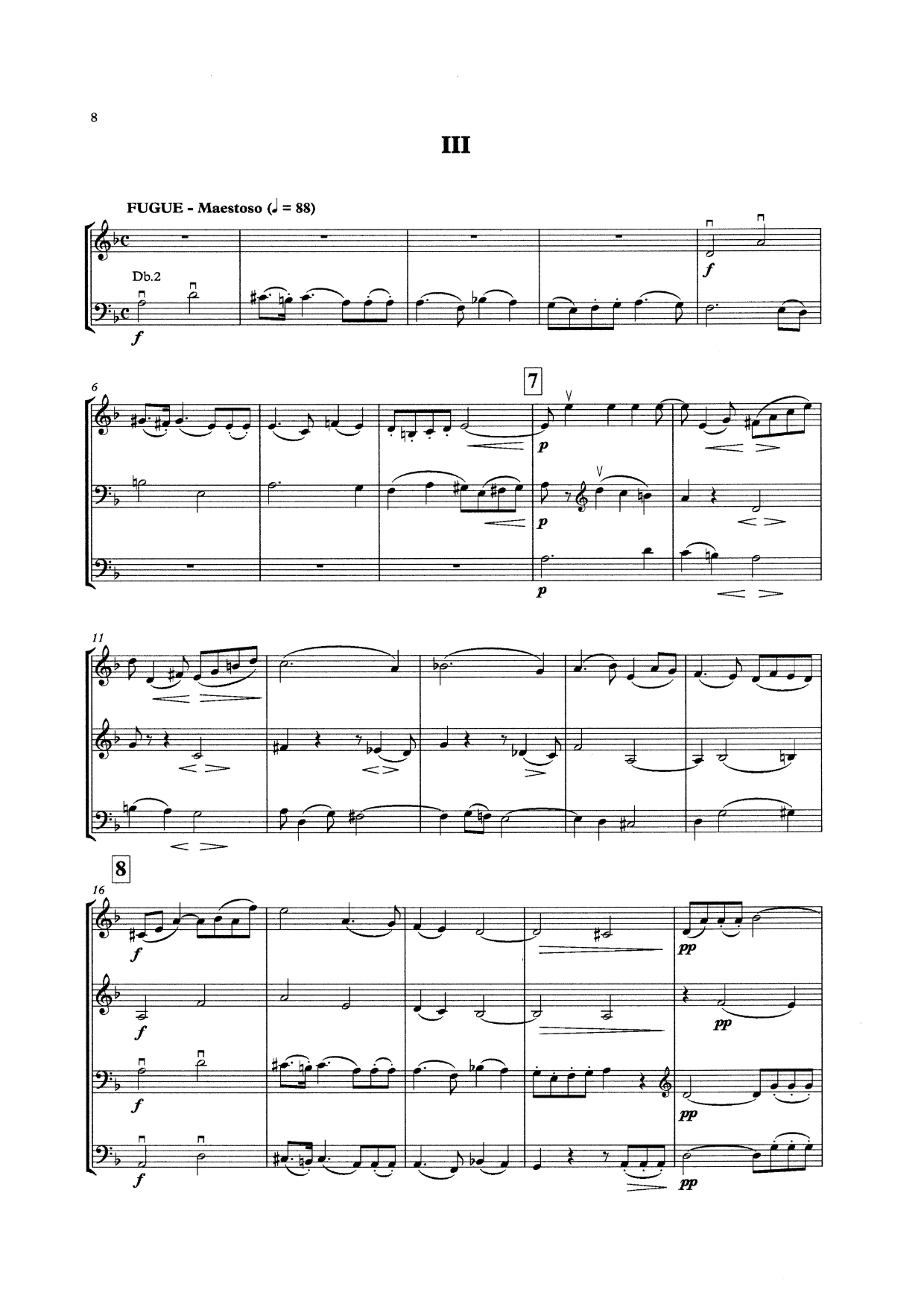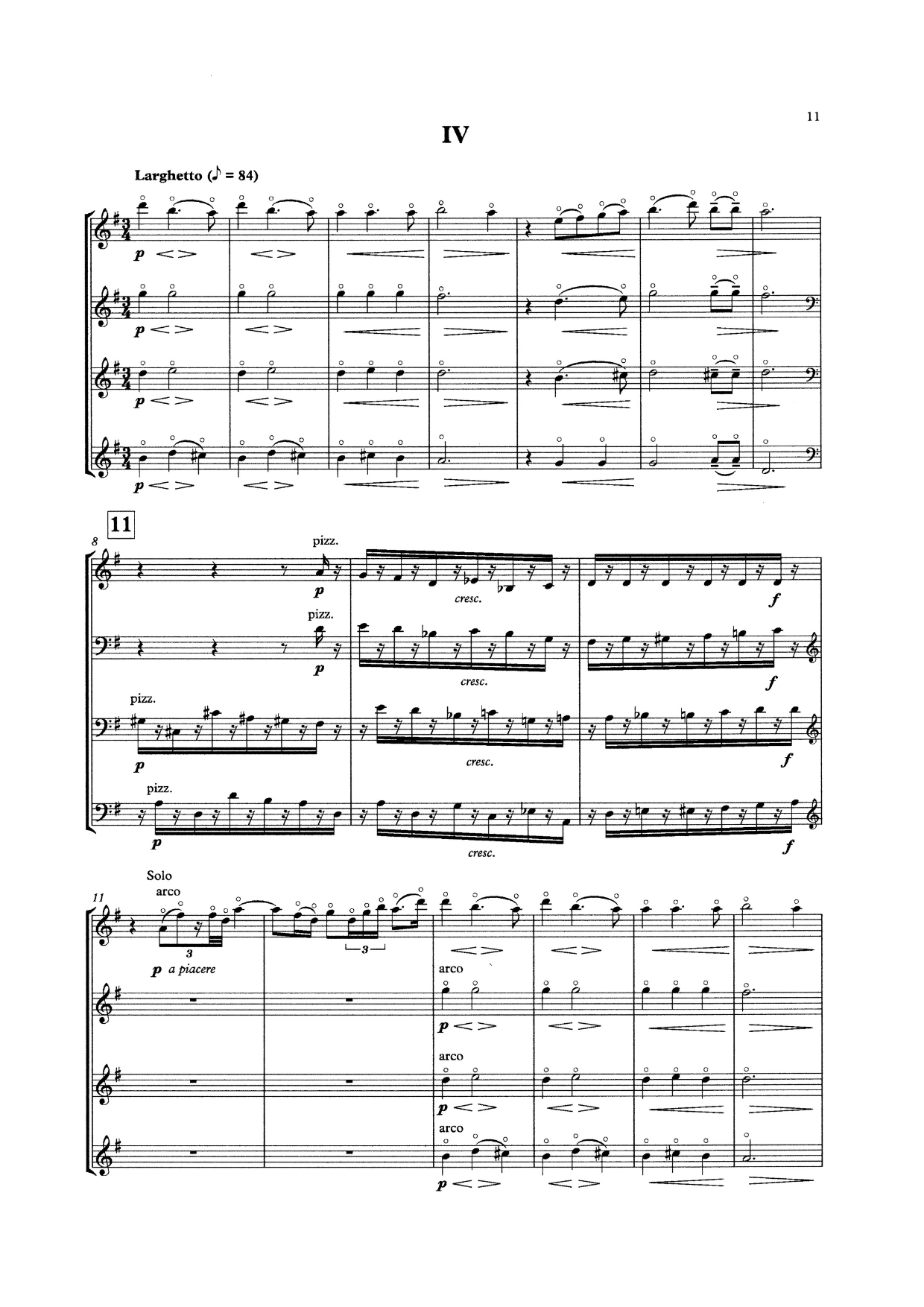David Heyes
Joseph Lauber: Quartet for 4 double basses
Joseph Lauber: Quartet for 4 double basses
Couldn't load pickup availability
About the Quartet
The music of Joseph Lauber is known to bassists thanks to his double bass quartet, a significant work in the history of the quartet medium. Composed in June 1942 for the bass quartet of the Berlin Philharmonic Orchestra, this important four movement work, alongside the quartets by Bernhard Alt (1903-1945), Arcady Dubensky (1890-1966) and Th.A. Findeisen (1881-1936) a decade earlier, demonstrate the many possibilities and great potential of the bass quartet.
The four contrasting movements offer musical and technical challenges for each bassist, in music which is engaging, colourful and constantly inventive. The musical style is tonal and accessible, with many solo possibilities, including an effective chorale-like introduction to the final movement, played entirely in harmonics.
The manuscript of Lauber’s Quartett is written at sounding pitch and in solo tuning, but for many decades bassists have been playing the first three movements in the wrong keys. The harmonics in the final movement are unplayable in A major but, when transposed a major 2nd lower into G major, everything is possible, confirming that the score is written in solo tuning and the parts should be transposed one tone lower. If this is correct for one movement, it is surely the same for the entire work.
Recital Music’s new digital edition is a first edition in the keys that the composer originally intended, bringing this historic and monumental quartet to new and future generations of bassists.
About the Composer
Joseph Lauber (1864-1952) studied in Munich and Paris and pursued a career as an organist, composer and teacher, subsequently becoming professor at Zurich and Geneva conservatoires. He was a prolific composer, writing in many genres, and his music has been described by harpist Alison Young as “rich, romantic and pastoral with a Swiss flavour - something tinged with the utter beauty of the landscape…”
Austrian bassist Hans Fryba (1899-1986) was Principal Bass of the Suisse Romande Orchestra in Geneva from 1929, a post he held for four decades, and his mastery of the double bass inspired the Lauber to write a number of impressive and advanced works for the double bass.
